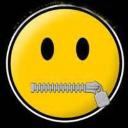Yahoo Answers is shutting down on May 4th, 2021 (Eastern Time) and the Yahoo Answers website is now in read-only mode. There will be no changes to other Yahoo properties or services, or your Yahoo account. You can find more information about the Yahoo Answers shutdown and how to download your data on this help page.
Trending News
In music, when you change chord, do you play all other instruments to that chord?
Any help and advice is appreciated
6 Answers
- pianomanLv 71 month ago
You don't play instruments to a chord. If several instruments are playing they all play the same chords and change chords at the same time.
- 1 month ago
In short, yes. Very clean, straight forward textbook music would do that. As James (from Metallica) is stroking a D Chord, Kirk is shredding up and down the scale that goes with a D Chord. When James strokes a G chord, Kirk has to move to the scale that goes with a G chord. You can break that rule for many reasons but if you're playing real vanilla, yes, the rhythm guitar's chord dictates everyone else' key.
Kenny Cheney is notorious for this. He'll use a major chord throughout 99% of the verse on the rhythm guitar and it's the vocal melody that takes the lead guitar part, dancing around inside it's D major chord scale box.
- MordentLv 71 month ago
The long answer is "It depends. Further understanding relies on a lot of factors, and a more in depth knowledge of theory"
The short answer is "Yes"
- ?Lv 71 month ago
Career professional musician, since 1973, and retired Theory teacher. If you are in a band and the harmony (played as chords for some instruments) indicate a D7 or a Ab/C - then ALL the instruments playing harmony must play that chord (or a slight variant) - and all single-note instruments must create any improvisation they do, with the knowledge of the content of that chord, being their guide. Performers cannot just *throw out there* whatever they want, and expect to get a decent and coherent outcome ( and I bet somebody brings up *free jazz* - which is NOT as random as non-players of it think it is . . ). Music has a plan - some strict, some loose - but we have all heard self-taught guitarists, for one example, think they can just basically VOMIT notes out of their guitar, and call it a shredding solo. Not by a long shot. Not can pages of sappy lyrics, set to even worse melodies, create a hit song. Might get a little airplay - then die.
//
There is a great segment on this weekend's Bill Maher show - about awards shows, and how *some* people complain about the winners. Basically, ANYBODY can get their music heard now - everybody streams, and does not have to wait on some recording studio elevating you. Winners clearly have FAR more hearings online - the delusional self-taught no-clue bottom of the list whine about how it is *rigged*. Nope. Winners are winner because they are SUPERIOR - in talent, education, and effort. People listen to music they LIKE - and stop listening to what is awful. So instead of asking basic questions HERE - and struggling - get yourself some REAL education. Those of us with a legitimate career - and I am not bragging, but am only one of MILLIONS who make their entire (well-paid) life in music, who, like going to medical school - got top instruction, and worked out butts off. No whining We CHOSE this.
As you did for another intelligent response - betcha you also give ME a TD. Hurts to hear the truth, fella. But we are here to HELP - and if a kick is needed - here it is.
- ?Lv 41 month ago
I think you need the help of a teacher to learn the basics of music. You don't play other instruments “to a chord”. Normally a chord accompanies a melody.
If you care to update your question and explain exactly what you mean I'll help as best I can but, frankly, I don't think that you really know what you mean.
Added, it really doesn't upset me at all but, out of curiosity, I'd love to know why I have a thumbs down 😂
- Lord BaconLv 71 month ago
I am not qualified in music beyond being a self-taught guitar finger-picker but may I offer an opinion. Each chord contains certain notes. Some chords share several notes with other chords. If the chords contain different notes, they would sound unpleasant if played at the same time. If the chords share common notes but one of them contains an additional notes (e.g. C major, A minor and Am7) they may sound OK at the same time. In general, the flow of a tune is maintained if all instruments follow a similar, compatible pattern of chord changes. That does NOT mean all instruments play a note that is part of that chord. There may be a melody or a counter melody that includes incidental notes. There may be dynamics within the tune intentionally caused by passing tensions or transient disharmonies. A melody can 'dance around' within the framework of the chord progression. That keeps it interesting and lively. Even ignoring a melody, the change to the chord progression can be gradual with solo instruments introducing subtle changes so chords evolve from one to another without obvious punctuation in the sound. I hope that makes some sense as I am guided only by my ears and many years guitar plucking.


